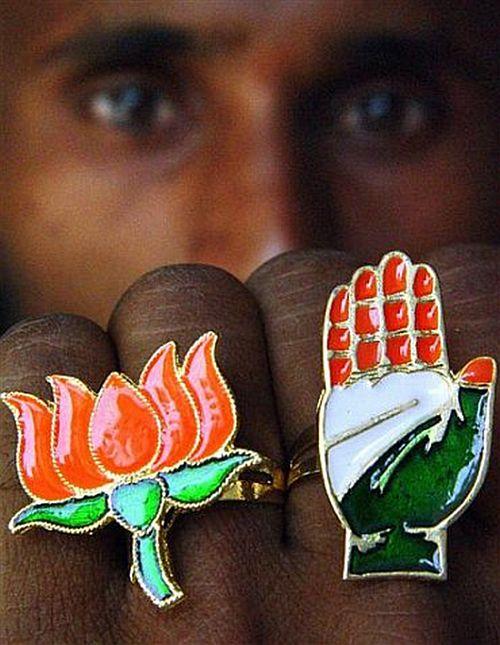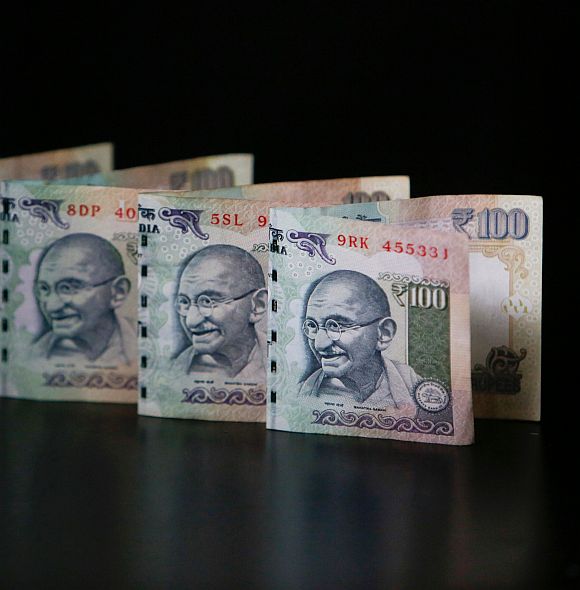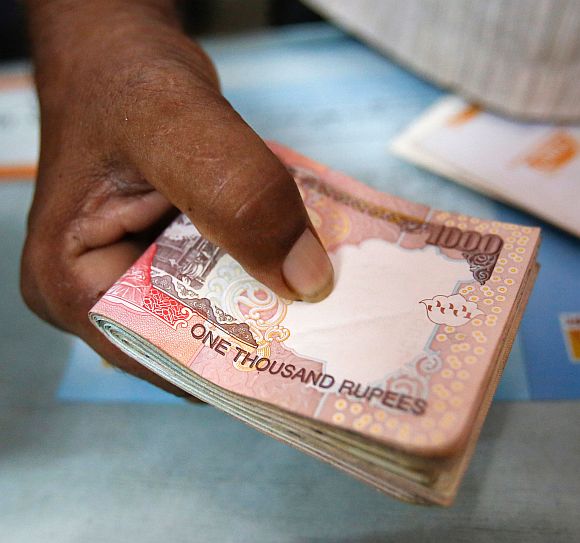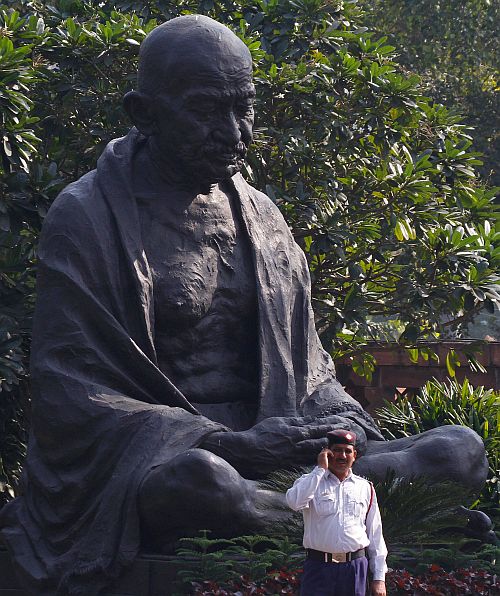 | « Back to article | Print this article |
Can our parties answer these 4 QUESTIONS?
Should parties provide clearer answers to queries about their financials? Sreenivasan Jain examines
Former Prime Minister Atal Bihari Vajpayee is said to have famously remarked that every legislator starts their career with "a lie on their lips", referring to the gap between what candidates actually spend and what they declare to the Election Commission.
Last fortnight, the Bharatiya Janata Party's General Secretary Gopinath Munde seemed to puncture that deception by declaring at a book launch in Mumbai that he had spent Rs 8 crore during his 2009 Lok Sabha victory.
If there is anyone here from the EC, he said, it doesn't matter, because elections are around the corner.
For his candour, Munde has been slapped with a notice from the Election Commission, which can bar him from contesting for three years if found guilty, making the timing of the current polls an entirely irrelevant basis for his bluster. He's also been served notice from the Income Tax department, which presumably wants to know where he got the Rs 8 crore from.
While publicly enjoying his discomfiture, the move to penalise Munde was privately seen in political circles as churlish, even among his rivals. After all, wasn't Munde calling out unrealistic election ceilings? And calling for greater financial transparency?
Click on NEXT to read further...
Can our parties answer these 4 QUESTIONS?
I, for one, would be the first to join this private backslapping and general mood of Munde-said-it-like-it-is if our political parties can clarify a few things first.
One, if they wish to argue that the current ceilings (Rs 16 lakh for Assembly elections and Rs 40 lakh for Lok Sabha elections) are too low, can they explain why almost every single candidate under-reports their expenses drastically below the prescribed limits?
The Association of Democratic Reforms went through the expenditure affidavits of 6,153 candidates who contested the 2009 Lok Sabha elections. The results are amusing. Only four admitted to going over the limit. Only 30 admitted to spending 90-95 per cent of the limit. The remaining 6,119 candidates declared spending only 45-50 per cent of the limit!
This trend continues unabated. In the recently concluded Karnataka elections, Priya Krishna of the Congress, who declared assets of Rs 911 crore, has told the EC he spent only Rs 87,300. The equally parsimonious Uday Garudachar of the BJP, with declared assets of Rs 95 crore claims to have spent only Rs 4 lakh.
Click on NEXT to read further...
Can our parties answer these 4 QUESTIONS?
Two, can the political class reconcile this sudden urge to promote financial transparency with their concerted attempts to stymie moves which attempt to do just that?
Struck by the fact that political parties received huge tax breaks on their income but couldn't be bothered to file regular returns (one of the prerequisites of tax exemptions) a group of petitioners moved the Central Information Commission to make their tax returns public. In return, these are some of the responses the CIC received: the Congress in its affidavit said "the applicant/appellant is a busybody having malafide intent and that they are seeking the information for ulterior motives".
The BJP said "IT returns are confidential information, parting with which, will amount to infringement of certain privacy rights of the members of the political parties."
The Bahujan Samaj Party said "the Income Tax Department cannot divulge such confidential information to strangers and thereby become party to political maneuverings of the rival political parties." And from the Dravida Munnetra Kazhagam: "A request for copies of assessment orders in motivated inasmuch as an appellant has no public knowledge of an assessment made."
Click on NEXT to read further...
Can our parties answer these 4 QUESTIONS?
Three, can political parties explain why a bulk of their income comes from unaccounted cash donations? When the parties began filing their IT returns, albeit in wildly varying, often baffling formats, their scrutiny revealed that every single national party was making use of a loophole in the Representation of the People Act, which allows for contributions above Rs 20,000 to be by cheque.
Any amount below Rs 20,000 doesn't have to be accounted for. For the financial year 2010-11, the Congress earned Rs 307 crore, of which Rs 247 crore came from the "sale of coupons".
The BJP earned Rs 168 crore, of which Rs 124 crore came from "voluntary contributions". The BSP earned Rs 115 crore, of which Rs 71 crore came from "voluntary contributions". Another Rs 15 crore came, intriguingly, from the "sale of immovable assets" (the BSP does not mention which assets it sold).
I leave it to the reader's judgement whether these "sale of coupons" etc. is money collected from lakhs of admirers/toiling party workers or is a euphemism for moolah the colour of a moonless night. Attempts to devise a standard income reporting format for political parties has been met by vigorous opposition.
Click on NEXT to read further...
Can our parties answer these 4 QUESTIONS?
Four, every time the words "financial" and "transparency" is mentioned in the same sentence, can political parties not bring up the old chestnut of state funding of elections, as Munde did in his speech?
Every single committee, from the Indrajit Gupta Committee, to the Law Commission, to the National Commission for the Review of the Working of the Constitution has found that state funding is desirable only if "the appropriate regulatory framework is put in place (ensuring) internal democracy, internal structures and maintenance of accounts, their auditing and submission to the Election Commission."
For reasons cited above, no political party will quote the riders.
I'm not holding my breath in anticipation of getting honest answers to these questions. But let's hold off on cheering Munde until then.
Click on NEXT to go further...
Top PHOTO features of the week
Click on MORE to see another set of PHOTO features...






